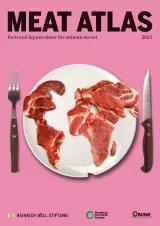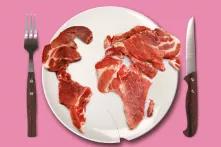
Representative surveys in various countries have found a surprising amount of public support for reduced consumption of meat. Policymakers must find the right package and sequence of measures to stimulate the transition to a more sustainable future.

If the world is to hit the Paris climate targets and achieve the UN Sustainable Development Goals, we will have to reduce the amount of meat we produce and consume. This especially applies to the industrialized countries. Public policy must play a key role. On the supply side, potential measures include stricter animal welfare and environmental standards, targeted subsidies for environmentally friendly production, support for plant-based options, and restrictions on the number of animals that can be kept per hectare. On the demand side, possible policies include discounts for plant-based products, higher taxes on meat, labels to reflect the sustainability of products, and rules to increase the share of vegetarian meals in public eateries like company restaurants or school cafeterias.
Such measures need to be combined into holistic policy packages. The main barrier is not technical but political. The dominant theme of “consumer responsibility” plays into the hands of powerful interest groups which benefit from the current system and try to limit state intervention in food consumption. Politicians are afraid of conflict with such groups and want to avoid a public backlash against policies that interfere in people’s daily lives. Yet research on public opinion in China, Brazil, the EU, India, Japan, South Africa, Switzerland, and the United States shows that people are in fact willing to reduce their meat consumption and are more accepting of policy changes than is commonly assumed. A recent survey for the European Investment Bank of 30,000 respondents in 30 countries, for example, found that 78 percent of Chinese respondents, 65 percent of those in the EU, and 54 percent of those in the United States, supported reductions in red meat consumption to fight climate change.
Similarly, a study by the Swiss Federal Institute of Technology found that over 50 percent of citizens in China, Germany and the United States supported measures to reduce meat consumption, even if they would mean higher prices and interference in their private lives. Particularly welcomed were measures that covered both production and consumption, such as a combination of higher animal welfare standards, increased taxes on meat, discounts on plant-based meat substitutes, and financial support to help low-income households purchase environmentally friendly food products.
The survey found great differences in public support for the various policy proposals: support for the most popular package was 55 percent higher than for the least popular. That means that packaging the policies in the right way, and introducing them in the right order, will help reduce political risks and build supportive coalitions. Policymakers need to explain the reasons for demand-side policies to reduce meat consumption – e.g. by highlighting the climate mitigation benefits, rather than trying to reframe and hide the costs.
The survey found that support for meat substitutes (such as targeted producer subsidies) and incentives for plant-based diets (via tax discounts) was also high in China, Germany and the USA. Such measures could trigger changes in consumption and attitudes that could make more stringent demand-side policies, such as higher taxes on meat, politically feasible.
A recent study in China and the USA highlights that growing personal experience with plant-based meat substitutes is essential for transforming the meat system. If someone has already tried plant-based meat substitutes, they are more likely to reduce their intake of meat and to support policies that cut meat consumption.
Policies could also increase the availability of vegetarian dishes in public eateries, for example, lower the consumer cost of plant-based options, and create coalitions between the producers of such products, retailers, investors, NGOs, and consumer groups. A combination of campaigns and product labelling, together with the greater availability of meat substitutes and vegetarian dishes, could trigger a virtuous cycle of change. Greater public support for change and awareness of meat-related sustainability issues could then open windows of opportunity to push for more transformative policies.

